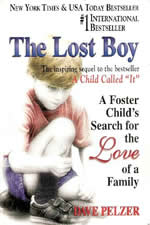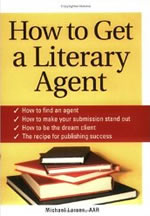I feel a tad guilty. I have made it a goal to try to make sure to incorporate newer titles with titles that are well, less new. While I accomplished this with this month’s fiction entry, the books on this month’s nonfiction list are from 1997-2008. They are not the most recent titles mind you, but they are either ‘new to me’ or worth talking about after all this time (which might actually be more impressive than hot titles that are current, because these books have staying power).
I hope you enjoy, I know that I did!
“Queen Of The Road”
By Doreen Orion (June 3, 2008) ![]()

 What happens when you take two polar opposites who have been happily married for many years and throw in a midlife crisis? Not an affair or a shiny new car (much to the author’s dismay) but instead a year-long adventure, full of many misadventures (fire, armed robbery, a nudist resort just to name a few) packed into this hilarious memoir “Queen Of The Road” by Doreen Orion.
What happens when you take two polar opposites who have been happily married for many years and throw in a midlife crisis? Not an affair or a shiny new car (much to the author’s dismay) but instead a year-long adventure, full of many misadventures (fire, armed robbery, a nudist resort just to name a few) packed into this hilarious memoir “Queen Of The Road” by Doreen Orion.
Orion is a self-proclaimed (though anyone who knows her hardly disagrees), princess – her official title “Princess of the Island of Long”. She works from home and takes pride in the fact that she can remain in her pajamas (and often in bed) all day long. Her husband Tim is the outgoing, type-A sort who always has to be busy (who needs sleep, no wonder I relate to this man). But when Tim decides he wants to stop doing what is expected of him and follow his dreams, his wife is mortified when the dream he chooses involves a cross-country trip of the continental United States. This feeling only escalates when Tim wants them to live on a bus for the entire trip, which will take up an entire year. This would be enough for a fun romp of a book, but I should also mention that Orion and her husband are both shrinks who love to analyze each other. The front cover states this book is “the true tale of 47 states, 22,000 miles, 200 shoes, 2 cats, 1 poodle, a husband and a bus with a will of its own.” I don’t think I need to say anything else.
Orion’s voice is what makes this fantastically funny story premise into an even better (and more hysterical, if that’s possible) book. I wanted to use a quote or two from the book to demonstrate just how funny Orion is and found it impossible to choose between them – there are just too many! Whether it is Orion commenting on not being worried about seeing a grizzly bear because she is surrounded by elderly tourists who she is confident she can outrun (page 248) or pondering how people could just cut each other off because they were angry. She chalked it up to cultural differences because she stated that in Jewish families (she is Jewish) if you were that upset with someone you simply move in next door and make their lives as miserable as possible (page 49). Orion is never raunchy or gratuitous, but for a princess, she also has no hang-ups about how she looks or comes across, much like physical comedians. That is a good thing, since so many of the comedic misadventures are very physical.
I think one of the reasons I appreciated this book so much is because I married my opposite and watching their dynamics and conversations down to body language could have been them reenacting scenes from my own marriage (though we have never gone cross-country on a bus before). My personality is much like Orion’s husband whereas Orion’s laidback nature and desire to lounge around is much like my husband. Their behaviors on the other hand are reversed when it comes to us. I am like Orion in my behaviors (I feel indoor plumbing will always be a necessity for example, and while I could never claim Orion’s ‘shut-in’ status, because of my deafness and my introverted nature, I usually prefer to stay at home). My husband on the other hand is like Orion’s husband Tim in his behaviors. Orion refers to her husband and ‘Project Nerd’ and he always has something in the works around the house, on a car, etc. just like my husband.
A final bonus of this book, if you enjoy martinis each chapter begins with a recipe (Orion’s own from my understanding) of a drink Orion used to get through whatever misadventure is in store for them in that chapter. If you want something fun to read, pick up this book. If you are in the mood for comedy or functional dysfunction, pick up this book. If you want something easy, pick up this book. I really don’t know of a reason why you shouldn’t pick up this book. Even better, read it while traveling or while lounging on the beach, so long as you’re not afraid to laugh out loud in public!
“The Lost Boy: A Foster Child’s Search For The Love Of A Family”
by Dave Pelzer (August 1, 1997) ![]()
 “The Lost Boy” by Dave Pelzer is the sequel to his bestselling memoir “A Child Called It” (on last month’s noteworthy nonfiction list) and the second installment of a trilogy. This book chronicles Pelzer’s life from the age of twelve to the age of eighteen and follows him through the foster care system. Pelzer deals with a much ‘younger system’, though he faces many of the things kids still deal with today: being bounced around home to home, dealing with institutions, misguided psychiatrists and being branded by society as undesirable. In Pelzer’s case his mother continually tries to use the system meant to protect him to actually harm him, proving that his outward struggles (let’s not even get started on the internal yet) with her are far from over.
“The Lost Boy” by Dave Pelzer is the sequel to his bestselling memoir “A Child Called It” (on last month’s noteworthy nonfiction list) and the second installment of a trilogy. This book chronicles Pelzer’s life from the age of twelve to the age of eighteen and follows him through the foster care system. Pelzer deals with a much ‘younger system’, though he faces many of the things kids still deal with today: being bounced around home to home, dealing with institutions, misguided psychiatrists and being branded by society as undesirable. In Pelzer’s case his mother continually tries to use the system meant to protect him to actually harm him, proving that his outward struggles (let’s not even get started on the internal yet) with her are far from over.
I enjoyed this book much more than the first installment, and I think the reason why is twofold. First, the abuse Pelzer suffered was severe and some would even describe it as torturous. To read over a hundred pages of a child going through that is difficult to say the least. While Pelzer’s problems are not over in this book, they change and do not pack the same gut-wrenching wallop as those in the first do. This allows the reader to open themselves up to the book (I know I was much less guarded knowing he was out of his mother’s physical reach).
The other reason is that the writing is notably better than the writing in the first book. I debate on whether this is because Pelzer was trying to write through the eyes of his six-year-old to twelve-year-old self in “A Child Called It” while “The Lost Boy” deals with an older Pelzer (ages twelve to eighteen) or whether it was simply because the more you write the better you get at it, and this was written two years after “A Child Called It”. Personally, I think it is a little bit of both. I still find it hard to believe that Pelzer’s writing in the previous book was 100% because he took capturing his “through the child’s eyes” a step too far. “A Child Called It” depended on its story to make the book work, the writing was just kind of there (I would say it was fair). “The Lost Boy” however brings a more experienced (with a pen anyway) Pelzer to reader and the writing may not be fantastic, but it is good. Take a phenomenal (true!) story and solid writing that speaks for itself and together they make a must-read.
Like its predecessor this book will break your heart, frustrate you and probably make you angry. It’s not Pelzer’s fault, but one can’t help it when faced with a hard reality: child abuse exists. Perhaps the more difficult reality still for some readers, those children never see justice for what they endure. If you can get past that, however, you will enjoy this inspiring story about overcoming insurmountable obstacles. The first book was about surviving and this book is about self-discovery and Pelzer’s realization that he didn’t deserve anything he was dealt and the only thing to do is to let it go and be the person he wants to be. It is this acceptance that gives birth to the desire to be great, which happens by the end of this book and makes me excited to read the final chapter of this trilogy, and see how Pelzer raises the bar and learns to thrive.
“Grammar Girl: Quick and Dirty Tips For Better Writing”
by Mignon Fogarty (July 8, 2008) ![]()
 I think that most people who have ever gone to college have heard of Mignon Fogarty, or at least of her alter ego, Grammar Girl. Why? Because I know many a student who, when confronted with a question over usage or a grammatical rule, uses the power of a search engine and low and behold, Grammar Girl comes to the rescue. She has an incredibly popular weekly podcast and quite a following, deservedly so. In her book, “Grammar Girl: Quick and Dirty Tips For Better Writing” Fogarty asserts that grammar is not something to fear, but something to utilize – and she makes it so easy! Isn’t that what ‘quick and dirty’ is all about?
I think that most people who have ever gone to college have heard of Mignon Fogarty, or at least of her alter ego, Grammar Girl. Why? Because I know many a student who, when confronted with a question over usage or a grammatical rule, uses the power of a search engine and low and behold, Grammar Girl comes to the rescue. She has an incredibly popular weekly podcast and quite a following, deservedly so. In her book, “Grammar Girl: Quick and Dirty Tips For Better Writing” Fogarty asserts that grammar is not something to fear, but something to utilize – and she makes it so easy! Isn’t that what ‘quick and dirty’ is all about?
Fogarty, armed with a sharp wit, uses her terrific sense of humor to make the reader feel at ease while talking about the nitty-gritty of sentence construction, punctuation rules, grammar myths and matters of style. As she explains rules and uses both examples of what is correct, and what isn’t, she guides the reader through a simple understanding when it comes to many of the grammatical and style issues that editors and teachers come across on a daily basis. Perhaps, I shouldn’t be so happy about her ability to present writing mechanics in such an uncomplicated way. Hello, job security!
In all seriousness, I found Fogarty’s book incredibly helpful myself, for a few different reasons. I picked up the book because I wanted to get back to basics. I was running into the issue of understanding the rules and knowing what was correct from what wasn’t, but had difficulty explaining why to clients. When you know something for so long that it is second nature to you, you forget the why at times or at least how to break it down in ways people less versed in writing mechanics can understand. This book was fantastic in helping me reconnect with the simple explanations my clients can appreciate.
The second reason is that I learned a few new things myself. While I knew the rules, Fogarty sometimes went a step further, getting her inner nerd on by explaining the origins and interesting facts surrounding the rules she was talking about. Of course, this brought out my inner nerd and I found myself giving the same tidbits to clients, excited and fascinating by these facts, which I am sure sparked a few laughs from them. Hey – I embrace my inner writing nerd.
If I ever teach a composition class this is definitely one of the first books I want my students to read (and because I am such a nerd, you realize I already have a semester’s curriculum in mind with pop quizzes and what material to cover when). If you are a student, a parent of a student, a professional who wants to get back to the simple, a writer or just a nerd in general, then this book is for you! You’ll want to keep it handy, so don’t borrow a copy. Buy it! You’ll be thanking yourself when you’re up at three in the morning working on that writing assignment.
One last thing, because I can’t help myself… Nerd Power!
“How To Get A Literary Agent”
by Michael Larsen, AAR (April 1, 2006) ![]()
 Anyone who has read enough of my previous posts, know why I was reading “How To Get A Literary Agent” by Michael Larsen. What people probably don’t know, is that this has probably been the most helpful book I have read about the publishing industry, what agents do, why they can be beneficial and when they aren’t, how to get one and how to think the way an author needs to (differently from a writer).
Anyone who has read enough of my previous posts, know why I was reading “How To Get A Literary Agent” by Michael Larsen. What people probably don’t know, is that this has probably been the most helpful book I have read about the publishing industry, what agents do, why they can be beneficial and when they aren’t, how to get one and how to think the way an author needs to (differently from a writer).
Larsen is a successful literary agent with decades of experience, a member of the Association of Authors’ Representatives (AAR) and a coauthor of eleven books, who knows the world of publishing and has a deep appreciation for every side of it. What made this book stand apart was that it helped shape the reader (in theory a writer, aspiring to be an author) into thinking like an author. Publishing has changed in the last several decades and will continue to do so as technology takes over. The trick is all about your mindset. Your book is a vehicle, publishing is a business, and your name is a brand.
Larsen breaks down publishing, how publishers work and the differences between large houses, medium houses and small presses. He explains the process once a book is accepted by a publisher and even once it is published, as well as what happens once an agent takes you on as a client and the different ways they may try to sell your book. He also provides miscellaneous tips, encouraging words and marketing and platform ideas along the way.
I also appreciated Larsen’s professional objectivity. As an agent, one may wonder if he is going to be 100% pro-agent (they are always necessary and can do no wrong). The answer is no. He guides the reader through the question, ‘Is an agent right for me?’ because the answer isn’t always yes. He breaks down scenarios where an agent may not be necessary, or even beneficial, and also explains what you should realistically expect from your agent and red flags to watch out for.
Larsen’s writing is fresh and easy and allows the reader to flow through the book while retaining the information. One thing that I am still contemplating is the best order in which one reads this book. In the introduction, Larsen suggests reading Part 3 first, then Part 1 and Part 2, before moving on to the final chapter. This is what I did, since it was the author’s suggestion, and I wonder if reading it chronologically would have been better, as I originally intended. Larsen’s suggestion may be the best way and that internal debate is still raging. My only recommendation is to read the introduction first and if Larsen’s reasoning sits well with you then follow his advice, otherwise go the chronological route. My other piece of advice is not to skip anything. There are a few chapters that may seem less important or you may think do not pertain to you, but they inevitably will. This is a must-read for anyone who ever dreams of being published or anyone just interested in the business of publishing. Read the book cover to cover and thank me later.
Every nonfiction list is going to feature two memoirs and two other nonfiction books (at least this is how I hope it works out). Next month’s list will include a celebrity memoir (the first on my blog), a book about the dark side of your stars and more. Don’t miss it! (Out April 28)
-DMW






